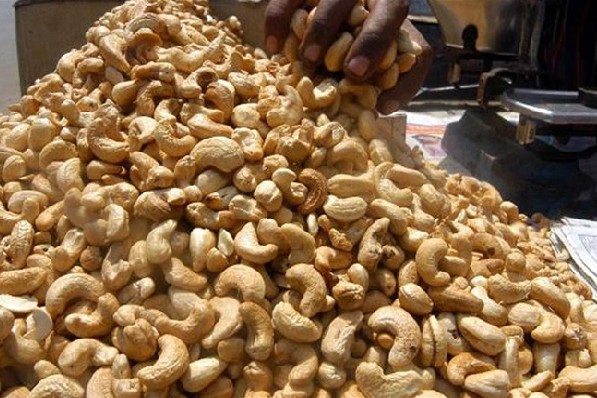Ivory Coast – The Leading Cashew Producer in the World
Ivory Coast has emerged as the global leader in cashew nut production, achieving a record yield of 970,000 tonnes in 2022. This remarkable output constitutes 25.2% of the world’s cashew production, highlighting the country’s significant role in the global agricultural market. The cashew industry is not only pivotal for Ivory Coast’s economy but also crucial for meeting the increasing global demand for this nutritious snack.
Global Cashew Production
In 2022, the global production of cashew nuts reached an unprecedented 3,852,868 tonnes. Ivory Coast’s contribution of 970,000 tonnes underscored its dominant position in the market. The global cashew industry has witnessed a steady growth rate of 4.35% annually since 1961, driven by rising demand and expanding cultivation areas. The top three producers – Ivory Coast, India, and Vietnam – collectively account for over half of the world’s cashew nut supply.
Nutritional Value of Cashews
Cashew nuts are renowned for their rich nutritional profile. They are an excellent source of essential nutrients, including proteins, healthy fats, vitamins, and minerals. Cashews are particularly valued for their high content of monounsaturated fats, which promote heart health, and for minerals like magnesium, phosphorus, and zinc. They also provide a substantial amount of plant-based protein, making them a valuable food source for vegetarians and vegans.
Economic Significance
Cashew production is a vital economic activity in many countries, particularly in West Africa and Southeast Asia. It supports millions of smallholder farmers and generates employment across the entire value chain, from cultivation and harvesting to processing and export. For Ivory Coast, the cashew industry is a significant contributor to the national economy, providing income and employment opportunities for a large segment of the population.
Challenges and Opportunities
Despite its economic importance, the cashew industry faces several challenges, including price volatility, environmental sustainability issues, and labor concerns. Addressing these challenges requires innovative approaches to cultivation, processing, and market development. Sustainable farming practices, improved processing techniques, and fair trade initiatives are some of the strategies being explored to enhance the industry’s resilience and sustainability.
Conclusion
Ivory Coast’s leadership in cashew nut production is a testament to its significant role in the global agricultural market. The country’s ability to consistently produce high yields of cashews not only boosts its economy but also helps meet the global demand for this healthy and nutritious snack. By addressing the industry’s challenges, Ivory Coast and other major producers can ensure the continued growth and sustainability of the global cashew market.

Why This News is Important
Economic Impact
The news about Ivory Coast leading in cashew production is significant due to its economic impact. Cashew cultivation provides substantial income and employment for millions of people, especially in rural areas. It supports local economies and contributes to national GDP, making it a critical industry for many countries.
Global Agricultural Trends
This news highlights important trends in global agriculture, particularly the increasing demand for nutritious and plant-based foods. Understanding these trends is essential for students preparing for exams related to agriculture, economics, and international trade.
Exam Relevance
For students preparing for government exams, especially those related to agriculture, economics, and international trade, this news provides a relevant case study. It offers insights into global production trends, economic dependencies, and the challenges faced by major agricultural industries.
Environmental and Sustainability Issues
The challenges mentioned, such as environmental sustainability and labor issues, are crucial for exams focused on environmental studies and social sciences. Addressing these issues is vital for sustainable agricultural practices and fair trade.
Nutritional Information
Understanding the nutritional value of cashews can be useful for exams related to health and nutrition. Cashews are a rich source of essential nutrients, and this information can be beneficial for questions on dietary recommendations and nutritional science.
Historical Context
Evolution of Global Cashew Production
Cashew nut production has evolved significantly since the early 1960s. Global production has grown from 287,535 tonnes in 1961 to over 3.8 million tonnes in 2022. This growth has been driven by increased demand and expanded cultivation in various countries, particularly in Africa and Asia.
Role of Ivory Coast
Ivory Coast’s rise as a leading producer began in the late 20th century. The country’s favorable climate and investment in agricultural development have enabled it to surpass traditional producers like India and Vietnam. Government policies supporting smallholder farmers and investments in processing facilities have also contributed to this growth.
Economic Significance
Historically, cashew cultivation has been a vital source of income for many developing countries. In West Africa, countries like Nigeria, Ghana, and Ivory Coast have relied on cashew exports to boost their economies. The industry’s growth has helped reduce poverty and improve living standards in these regions.
Nutritional Trends
The increasing awareness of the health benefits of cashews has driven demand in recent decades. Cashews are now recognized for their nutritional value, contributing to their popularity as a healthy snack. This trend has encouraged more countries to invest in cashew cultivation and processing.
Key Takeaways from Ivory Coast’s Cashew Production Leadership
| Serial Number | Key Takeaway |
|---|---|
| 1 | Ivory Coast is the largest producer of cashew nuts, yielding 970,000 tonnes in 2022. |
| 2 | Global cashew production reached 3.85 million tonnes in 2022, with Ivory Coast contributing 25.2%. |
| 3 | Cashews are rich in essential nutrients, including healthy fats, protein, and minerals. |
| 4 | The cashew industry supports millions of smallholder farmers and contributes significantly to local economies. |
| 5 | Challenges in the industry include price volatility, environmental sustainability, and labor issues. |
Important FAQs for Students from this News
What is the significance of Ivory Coast’s cashew production?
Ivory Coast is the largest producer of cashew nuts globally, with a production of 970,000 tonnes in 2022, making up 25.2% of the world’s total cashew production.
How has global cashew production changed over time?
Global cashew production has grown from 287,535 tonnes in 1961 to 3,852,868 tonnes in 2022, reflecting an annual growth rate of 4.35%.
What are the nutritional benefits of cashews?
Cashews are rich in essential nutrients, including monounsaturated fats, protein, magnesium, phosphorus, and zinc, which contribute to heart health and overall nutrition.
What economic impact does cashew production have on Ivory Coast?
Cashew production is crucial for Ivory Coast’s economy, providing income and employment for millions, particularly in rural areas, and contributing significantly to the national GDP.
What challenges does the cashew industry face?
The cashew industry faces challenges such as price volatility, environmental sustainability issues, and labor concerns, requiring innovative solutions to ensure its resilience and sustainability.
Some Important Current Affairs Links

















